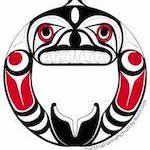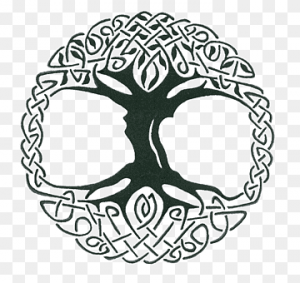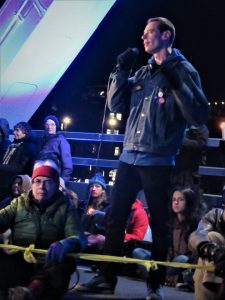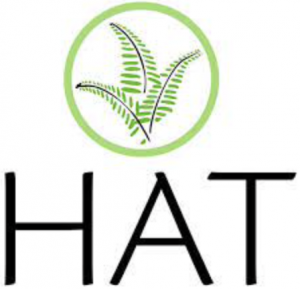Too much academic research has been done on Indigenous peoples and communities, and most of that research has been used to further the aims of the colonial erasure of Indigenous people.
 Learning to Listen is a Centre for Indigenous Research and Community-led Engagement (CIRCLE) affiliated community-based participatory project that recognizes its place on Indigenous territory and within Indigenous sovereignty. That means no one person – and no one worldview – is overseeing the whole project, and that community is represented at all stages, and in all parts of the project.
Learning to Listen is a Centre for Indigenous Research and Community-led Engagement (CIRCLE) affiliated community-based participatory project that recognizes its place on Indigenous territory and within Indigenous sovereignty. That means no one person – and no one worldview – is overseeing the whole project, and that community is represented at all stages, and in all parts of the project.
Indigenous Community Advisory (ICA): To do this, Learning to Listen is being undertaken by a community of practice. Originally, this community of practice was going to be called the Indigenous Community Advisory (or ICA), but the COVID-19 pandemic, and the impacts the Fairy Creek Blockade have had on communities on what is now Southern Vancouver Island have made gathering a formalized ICA difficult. Out of respect for Indigenous Nations and the Urban Indigenous community in METULIE (so-called Victoria), the burdens normally placed on those communities, direct participation has been sought and it has become easy to see that now is not the time for settlers to ask more of Indigenous people on these territories.
In actually supporting community work, it is becoming clear that the ICA exists, only it is informal and is based on relationships. Those land defenders and (future) matriarchs who are aware of this project, and who are allowing this project to take place on their territories, with their awareness, and in support of their projects make up the ICA. While there are no formal plans to bring the ICA together as a body in the near future (because of how busy our guides and hosts are with their own projects, and in their lives), my (Kikila) hope is to bring them together before the defence of my dissertation, and for me to present to them what will make it into my written submission.
Learning to be a guest here (let alone a better guest) means understanding how to be taught (check out Michael Elliott’s really helpful description of how settlers can come into learning in a good way). In many ways, the ICA is coming together as it must, and as only it can hear. From my experiences in this work, and through conversations with the land defenders who are informally in the ICA, the continued relationships between this project, members of this project, and our Indigenous hosts is a sign that we are working in a good way.
See the Accountability page for more on how this project is working under Indigenous leadership on Indigenous Territory, and see the Guides page for more on the individuals supporting this project with their guidance.

A note on the Project Community: The reason that the project participants are mostly European-descended and settlers of different lineages is quite simply because that is the community of focus for this project (the people being “researched”). Determining how settlers might come to support Indigenous Resurgence under Indigenous leadership, in ways that are meaningful to Indigenous peoples, is the purpose of this project. To do that, understanding how relationships to the land help to cultivate this form of support within those who share my skin, it is necessary to sit with and journey with settlers of these lineages. We cause the most harm, through structural racism, structural white supremacy, and through the Christian/Scientific worldview, making it necessary to sit with my community, my kin, to unravel those braids of colonialism that makes working with us so dangerous to Indigenous peoples.

Project Community
There are 2 circles of relations (groups) participating in this project as members of a Project Community. While there is interaction between both circles, these interactions take place on the land, informally, under Indigenous guidance. Otherwise, each circle is undergoing a transformational journey on their own time, and in their own ways, and both are vital to understanding how we settlers can better support Indigenous sovereignty.
Kikila Perrin, Project Keeper

My lineage is predominantly European, with my mother’s family having migrated to this continent from Bavaria (her father) in the 1930s, and England and France by way of Québec (her mother) during different times before then. By my father’s line I am Norse/Norman and Celtic/French, and my father migrated to Turtle Island from Switzerland in the 1970s. Born on the unceded territory of the Algonquin Anishnaabeg people, most of my life was spent in Tiotiá:ke in Kanienʼkehá:ka territory before a call brought me to W̱SÁNEĆ and lək̓ʷəŋən territories. It’s impossible for me to see my time spent on these territories now without the terrible truth that lets me be here. This project is also a part of my phd, which I began at age of 40 (2019) at UVic. Doing a phd is a confusing experience for me because of the privileged position of it, and the treatment that it brings me. The paths of my supervisors and other insurgent Elders who make up my knowledge lineage, though, inspires me to it. One of the experiences bringing me to this project are my time working with the Alliance for Intergenerational Resilience (AIR). My name is the word for “kettle” in ‘Ōlelo Hawai’i and came to me as a gift (not in an official or ceremonial way) when I was an infant displacing Kānaka Maoli on the Island of Hawai’i with my parents (my dad was on a work trip). It is problematic in many ways, and this isn’t lost on me. It is a name that reminds me of my responsibilities on unceded and stolen Indigenous land, and of my responsibilities as someone who appropriates he’e nalue/whakahekeheke. It is an honour to represent my line in this project, and to work towards non-metaphorical decolonization and land back as a settler. With gratitude, this project could not have began without my mother, and not without those who have offered me guidance on this path: Adong Vicky (Acholi), T (Māori), Ralph McDougall (Secwépemc, Okanagan), Dwayne Gladue (Cree), Dennis Pierson, Lewis Williams (Ngai Te Rangi and Scottish), Tsastilqualus (Ma’amtagila), Rose Henry (Tla’amin), Ernest Alfred (‘Namgis), Acholiland, Aotearoa, and Turtle Island. All of my relations.
As project keeper, Kikila spends time with both circles of the Project Community and oversees the administration and facilitation of this project.

Keith Cherry, Project Witness (Participant)
I am an able-bodied, cis, straight, white, settler male from L’nu (Mi’Kmaq) territories, subject to the Peace and Friendship Treaties of 1726, 1749, 1752, 1760, 1778 and 1779. I acknowledge that none of these treaties have been honoured in practice, and that as a result settler governance of these lands constitutes an ongoing act of colonization.
My maternal ancestors are Scottish and English. My paternal side is Polish and Irish. Both sides are marked by their own historical experiences of dispossession and proletarianization. As a result, neither maintains strong links to their ancestral lands, cultures, languages or traditions. Instead, to varying degrees, both deliberately assimilated into colonial society and participated thoroughly in the dispossession and oppression of Indigenous peoples across eastern and central Turtle Island, including working in resource extraction (timber and oil).
The intergenerational wealth my ancestors accrued through colonisation has allowed me to pursue a life of study and community engagement. I received a BA and an MA in Canadian politics from the University of Ottawa. At age 25, I moved to Lək̓ʷəŋən and W̱SÁNEĆ territories, subject to the Doulas Treaties of 1850 and 1852 respectively, to pursue a PhD. in law and society.
I had long been engaged in state politics, but arriving on this coast, where issues of colonization are considerably more visible than they are out east, has proven a (trans)formative experience for me. As I began to understand how colonial capitalism recreates systems of oppression wherever it goes, I began to see my responsibilities to break the intergenerational cycle of colonization. My political engagements began to focus on direct action in support of Indigenous sovereignty and climate justice.
I have been privileged to participate in and learn-with Tsleil Waututh-led efforts against the Transmountain pipeline, Musgamagw Dzawada’enuxw-led efforts against open-net fish farms, Wet’suwet’en-led efforts against the Coastal Gas Link pipeline, and the Fairy Creek blockades against old-growth logging. Through these experiences, my advocacy has come to focus on building grassroots community capacity, while my academic work increasingly revolves around the intersections of pluralism, social movement theory, indigenous resurgence, and landback. This path has been a humbling one, and I am learning (and unlearning) a great deal about the transformative potential of traditional Indigenous governance as a liberatory project for all people.
Nadine Pluzak, Project Witness (participant)
To learn a little about Nadine, her path to participating as a Witness in this project, and how she came to spend time learning at the feet of the Indigenous Elders who share space with her, please see her website, and watch her TEDx talk, and the opening with Haida Elder Woody Morrison.
Kyla Mort, Project Witness (participant)
Coming Soon
Lauren McIndoe, Project Witness (participant)
To get to know Lauren a little bit, please see her bio on the Habitat Acquisition Trust (HAT) website (scroll down until you see her name).
Neal Graves, Project Witness (participant)
For some information on Neal, how he has been experiencing his time as a Witness for this project, and some of his reflections on his time spent on the land under Coast Salish guidance, please see his story map exploring this project.
The above individuals are all members of the first circle of the Project Community – a group that has come together intentionally to participate in unlearning together, through spending time on the land under Indigenous guidance, supporting Indigenous projects, and then reflecting individually and collectively on our experiences. We hold circles each season honouring local protocols that have been shared with us, and we spend time together (to do this work, and as people becoming friends) when we can.
Habitat Acquisition Trust (HAT), Circle of Project Witnesses (participants)
 In late-fall 2023, ethics were approved (see the Forms section of the Accountability page) for adding a 2nd circle of settler participants to this project, and a number of employees of HAT have agreed to participate. Because of Kikila’s experience with HAT (they work there as the Community & Development Coordinator), they were able to see that HAT is working very hard to decolonize its ecosystem stewardship work on Indigenous territories by entering into relationships with Indigenous land stewardship groups and individuals, while at the same time accessing and participating in as much Indigenous-led (or at least guided/recommended) circles and training as possible, independently of participating in a project like this.
In late-fall 2023, ethics were approved (see the Forms section of the Accountability page) for adding a 2nd circle of settler participants to this project, and a number of employees of HAT have agreed to participate. Because of Kikila’s experience with HAT (they work there as the Community & Development Coordinator), they were able to see that HAT is working very hard to decolonize its ecosystem stewardship work on Indigenous territories by entering into relationships with Indigenous land stewardship groups and individuals, while at the same time accessing and participating in as much Indigenous-led (or at least guided/recommended) circles and training as possible, independently of participating in a project like this.
HAT staff are coming to this unlearning work because of our relationships with our Indigenous hosts, and Indigenous territory. Even though there is an intention in how we are coming to all of this (we are consulting with our Indigenous friends who invite HAT to support their work, and turning towards the training and facilitators that they recommend), HAT represents a group of settlers who did not come to this project with the same intention as the other members of the Project Community, who joined this project specifically for this work. HAT staff are undertaking this journey very much because of our work on stolen land, and because of our relationships with host Nations and individuals.
